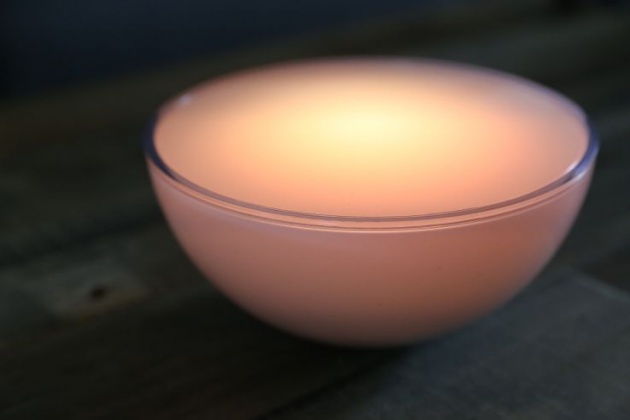
Philips has a new addition to their Hue smart lighting system: The Hue Go, a portable light that packs three hours of use on a full charge before it needs to be plugged in again. The Hue Go has a single button that offers local control over light tone and dynamic effects, as well as a low power standby mode and auto dimming to maximize usage on the go.
The Hue Go resembles some of Philips existing efforts to create companion accent lights separate from its connected bulbs, like the LivingColors Iris and Bloom, but with the unique feature of a built-in battery. It’s a semi-spherical gadget encased in translucent hard plastic, capable of outputting light of any color just like the primary Hue bulbs, as well as a range of white tones. The portability aspect offers freedom from fixed installation points, however.
In practice, the Hue Go is a useful utility light for any scenario where you need a moderate amount of omnidirectional lighting. It’s very handy for exploring deep closet corners, for instance, or for providing a bit of patio lighting that marries a nice ambiance with decent visibility. It also has the ability to act as a gradual wake-up light when plugged in on a bedside table, mimicking a gradual sunrise with alarm functions programmed through the Hue app.
The Hue Go can output at up to 300 lumens when plugged in, but cuts it to 40 percent brightness when used unplugged to maximums battery, which gives you a pleasing but dim kind of ambient lighting. Overall, it’s plenty bright for most cases where you’d be using a portable lighting solution anyway, especially given that this isn’t a work light designed for the workshop, for instance. It’s also compatible with third-party Hue apps, and can be included in any scenes you program using your Hue app and existing Hue system.
It’ll retail for $99.95 when it goes on sale at Apple Stores, Best Buy and Amazon in the U.S. by the end of May or the beginning of June, which is a good deal considering the cost of standalone sunrise simulation wake-up lights. A $100 ‘bowl of light’ may not be at the top of everyone’s needs list, but it could definitely prove a useful addition to existing Hue setups.








